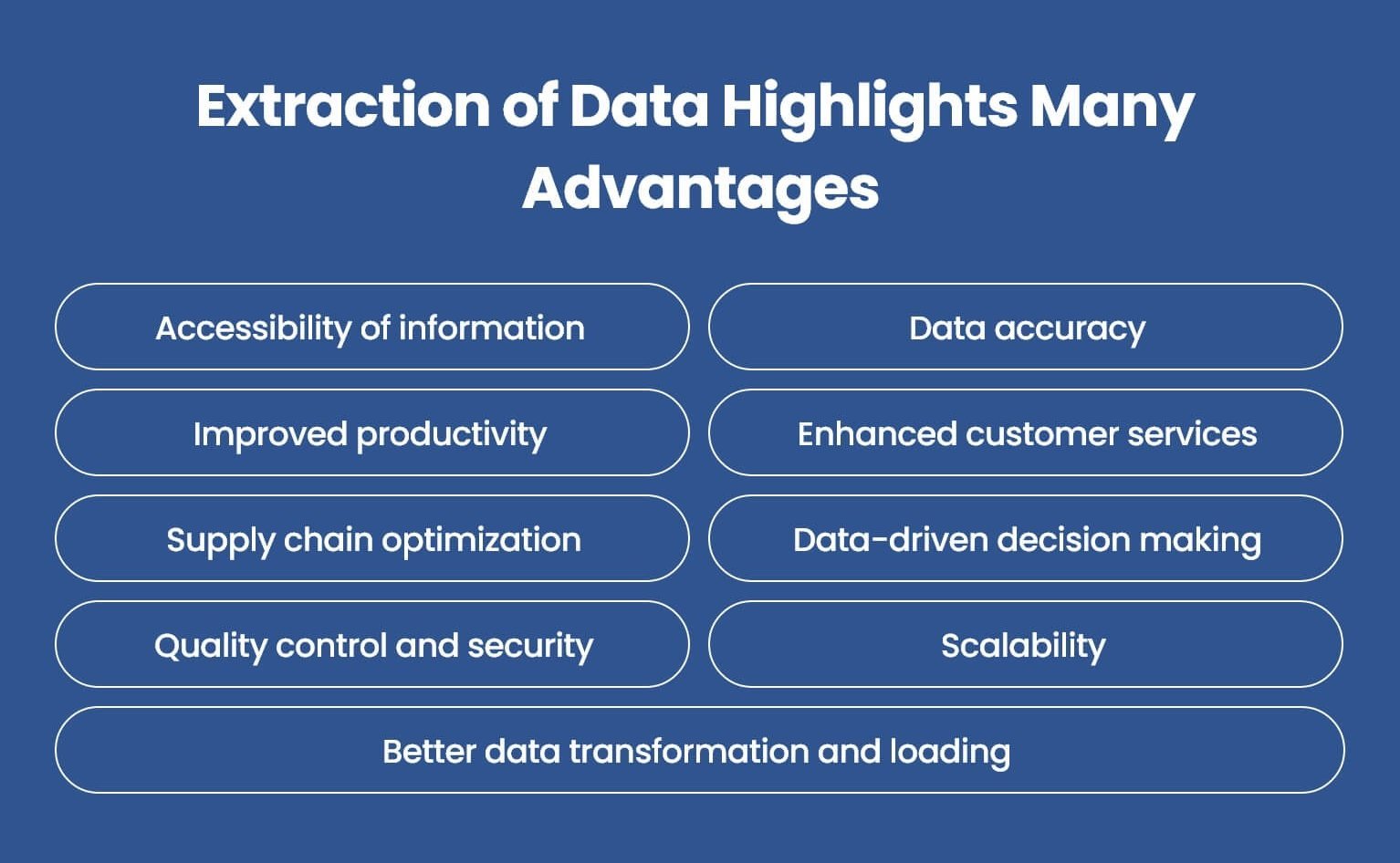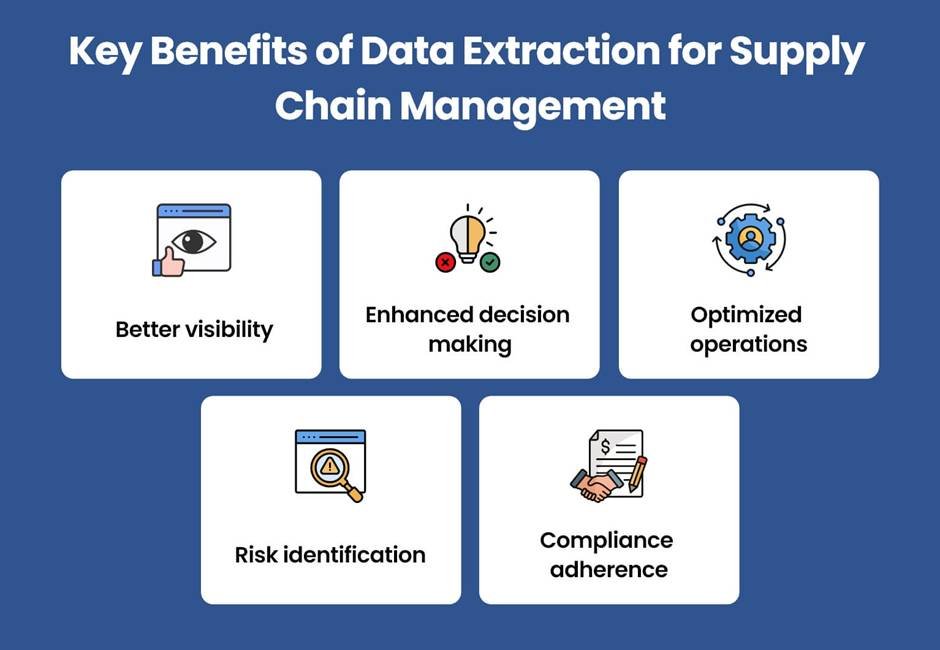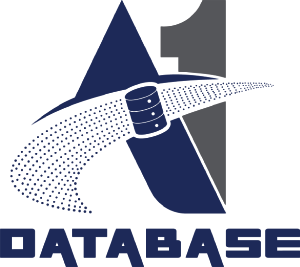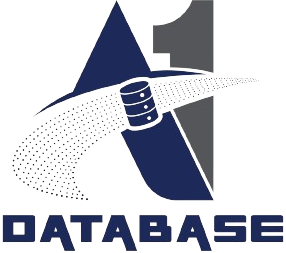- December 7, 2024
- by Admin
- Data Extraction
Data is prevalent in various formats and is utilized for distinct purposes within the business environment. As data offers valuable insights, it can be gathered from multiple sources, including online platforms, documents, and targeted systems. Typically, this involves the process of retrieving or capturing relevant information from these sources and organizing it into a standardized format that allows for easy access, storage, and analysis for subsequent operational activities. It is important to highlight that data extraction services are essential for organizations aiming to maintain a competitive advantage by providing actionable insights that support effective strategic planning. Although data extraction and data scraping are often conflated, they serve different purposes and employ different techniques and benefits. Furthermore, a range of techniques for data extraction exists that can achieve the desired results.
- Data mining
- OCR
- API integration
- Web scraping
Did you know: The role of web scraping in enhancing the analysis of customer feedback
In the logistics industry, companies often gather data from a variety of documents, including receipts, purchase orders, customs forms, bills, invoices, and inventory records. This extracted data provides valuable insights that facilitate precise supply chain management, inventory planning, restocking, and stock replenishment. By utilizing data extraction in supply chain management, organizations can minimize procurement delays and costs while enhancing operational efficiency. Furthermore, the process of data extraction is crucial for numerous businesses.

While the benefits of data scraping are numerous, data extraction plays a crucial role in optimizing supply chain management, especially in manufacturing and logistics sectors. Online web scraping services designed for these industries yield superior results that provide valuable insights into customer demand, granting a competitive edge in the market. We will examine the principles of supply chain management and the connection between data extraction services and this discipline.
What is Supply Chain Management?
In sectors such as manufacturing and logistics, the success of operations is heavily influenced by supply chain management (SCM). SCM is the process of optimizing the flow of a product from the initial sourcing of materials through production, logistics, and delivery to the end consumer. The success of supply chain management processes is reflected in their effectiveness and efficiency, which in turn enhances customer service. This process is intertwined with planning and execution, essential for tracking and managing the movement of materials, goods, information, and financial data throughout the activities.
Moreover, the entire supply chain process includes various components such as planning, sourcing, production, inventory management, storage, transportation, and the return of products. The effectiveness of supply chain management hinges on strategic planning, collaboration, and the implementation of specialized software, which together provide numerous benefits, resulting in increased profits, improved brand image, and a competitive edge in the market. Let us delve into how data extraction for supply chain management can yield valuable results.
The Contribution of Data Extraction to Effective Supply Chain Management
Our comprehensive discussion on supply chain management and data extraction services has underscored the significance of both elements. In the realms of manufacturing and logistics, data is essential and manifests in various forms. It provides valuable customer insights and facilitates efficient tracking of goods. Furthermore, akin to other sectors within the global economy, the manufacturing and logistics industries are progressively embracing innovative technologies and harnessing data to improve operational performance. The contemporary supply chain generates an extraordinary amount of data, driven by technological advancements. This data appears in multiple formats, including touchpoints, tracking numbers, IDs, and customer databases. Given the sheer volume of information, manual management and analysis become nearly unfeasible, highlighting the necessity of data extraction in supply chain management.
The concept of data extraction refers to the collection of raw information from multiple sources, which is then formatted into a standardized structure. This structure ensures ease of access, storage, and analysis for future operational endeavours. In supply chain management, the role of data extraction services is pivotal, as they empower businesses to extract valuable insights from vast datasets.
Furthermore, automating the extraction of data and its arrangement into uniform formats not only streamlines operational processes but also bolsters decision-making capabilities and enhances the overall efficiency of supply chain management systems. In fact, an effective supply chain allows manufacturers and logistics leaders to utilize predictive analytics to optimize inventory levels, reduce costs, and mitigate delays. Engaging a data scraping service ensures that the collected data is organized in a manner that is easily retrievable. We will now delve into the significant benefits of data extraction for supply chain management.

- Better visibility: Scanning data from various sources provides real-time access for businesses to monitor inventory levels and transportation routes and identify areas of disruption.
- Enhanced decision making: Data-driven insights help manufacturing and logistics firms make informed decisions and enhance operational activities for a better customer experience.
- Optimized operations: Data extraction services bring optimized operations, which identify inefficiencies in supply chain management and also reduce extra costs.
- Risk identification: Data extraction helps detect and address possible errors and risks that can impact quality issues, supplier disruption, or misrouted goods shipments.
- Compliance adherence: In such sectors, permits and following regulations are mandatory; therefore, data extraction can help to collectively provide insights into whether the operational activities are in compliance with industry regulations and standards.
There are a variety of benefits, but the major advantages are summarized here. The process of extracting data in the supply chain can be intricate due to the enormous volume of data present. Furthermore, it is a challenging task for any resource to manually compile data from numerous datasets. Typically, businesses have common data sources for data extraction, which include:
- ERP Systems: ERP systems are widely utilized in logistics and manufacturing sectors, enabling the collection of data related to inventory management, order processing, and production metrics. These systems provide comprehensive data that can be analysed to derive meaningful insights, facilitating informed decision-making within the organization.
- Transportation Management System: Transportation management systems are designed to oversee the movement of goods by carriers and evaluate associated costs. As organizations strive to minimize expenses, the ability to extract data becomes a crucial asset for assessing overall costs while monitoring potential delays in fleet operations.
- Warehouse Management System: In a manner akin to transportation management, warehouse management systems focus on inventory control, tracking shipment movements, and optimizing storage capacity. By utilizing data extraction services, companies can gain detailed insights into the status of their goods, enabling effective communication with customers and improved inventory oversight.
- Supplier and Customer Database: Extracting data from customer databases allows businesses to gain valuable insights into supplier efficiency, customer preferences, market dynamics, and demand patterns. This information is instrumental in enhancing service quality and improving the overall customer experience.
The data sources listed above are only some of the possibilities; however, the organization’s workflow and operations may suggest the existence of more. By harnessing data extraction services, supply chain management can achieve enhanced effectiveness and efficiency.
Conclusion
The importance of data extraction services extends beyond the realms of healthcare, real estate, and information technology; it also provides valuable data-driven insights for the logistics sector. Proper implementation can lead to strategic and efficient supply chain management, ultimately enhancing a company’s success rate.

